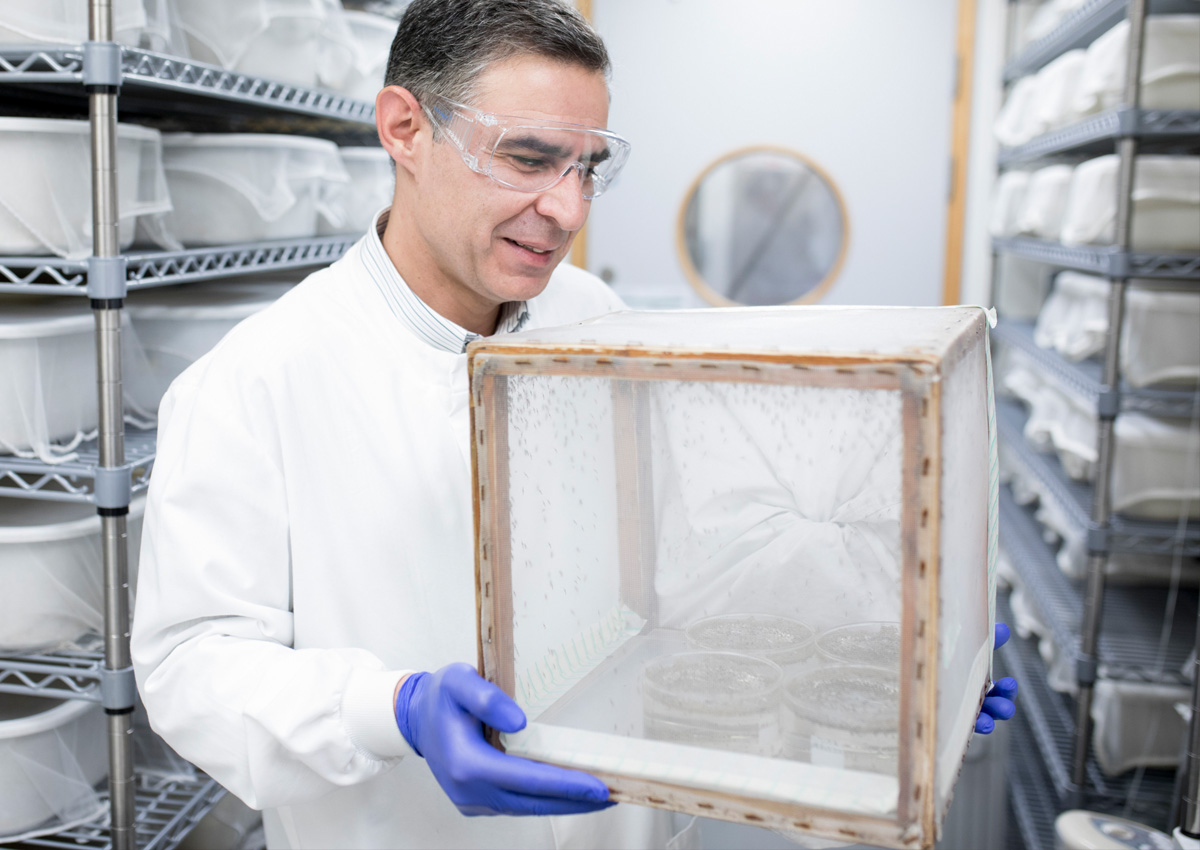
Scientists Genetically Engineer Mosquitoes that Can't Spread Malaria
October 5, 2022| |
Researchers from the Transmission:Zero team at Imperial College London have engineered mosquitoes that slow the growth of malaria-causing parasites in their gut, preventing transmission of the disease to humans.
Malaria is one of the world's most devastating diseases, putting at risk about half of the world's population. In 2021 alone, malaria has infected 241 million and killed 627,000 people, mostly children below five years old in sub-Saharan Africa. The Transmission:Zero team genetically engineered (GE) Anopheles gambiae, the main malaria-carrying species of mosquito in sub-Saharan Africa. When the GE mosquitoes take a blood meal, they produce two molecules called antimicrobial peptides in their guts. These peptides, originally isolated from honeybees and African clawed frogs, impair the malaria parasite's development.
This innovation is designed to be used in current gene drive technology to help spread it more widely among any natural population. The Transmission:Zero team is creating two separate but compatible strains of GE mosquitoes, one with the anti-parasite modification and another with the gene drive. They can then test the anti-parasite modification on its own first, only adding in the gene drive once it has been shown to be effective.
With partners in Tanzania, the team has set up a facility to generate and handle GE mosquitoes and conduct the first tests, including the collection of parasites from locally infected schoolchildren, to ensure the modification works against the parasites circulating in relevant communities.
For more details, read the news article on the Imperial College London website.
| |
You might also like:
- Scientists Develop Gene-Edited Mosquito to Help Eliminate Malaria
- Researching Gene Drive Mosquitoes to Help Malaria Control
- Gene Drive Mosquitoes to Help Malaria Fight in Africa
Biotech Updates is a weekly newsletter of ISAAA, a not-for-profit organization. It is distributed for free to over 22,000 subscribers worldwide to inform them about the key developments in biosciences, especially in biotechnology. Your support will help us in our mission to feed the world with knowledge. You can help by donating as little as $10.
-
See more articles:
-
News from Around the World
- FAO and WFP Forecast Food Insecurity in the Coming Months
- Historic Moment in Kenya as Government Lifts GMO Ban
- Tel Aviv University Researchers Enable Rust Resistance in Wheat
- Updates on Golden Rice and Other Biotech Crops in the Philippines
- ISAAA Webinar Explores Animal Biotech Prospects in the Philippines
- Researchers in Japan Identify Genes to Help Crops Against Flooding
- Scientists Genetically Engineer Mosquitoes that Can't Spread Malaria
-
Research Highlights
- Scientists Test Efficacy of Alternate Insecticidal Gene for Cotton
-
Read the latest: - Biotech Updates (February 18, 2026)
- Gene Editing Supplement (January 28, 2026)
- Gene Drive Supplement (February 22, 2023)
-
Subscribe to BU: - Share
- Tweet

